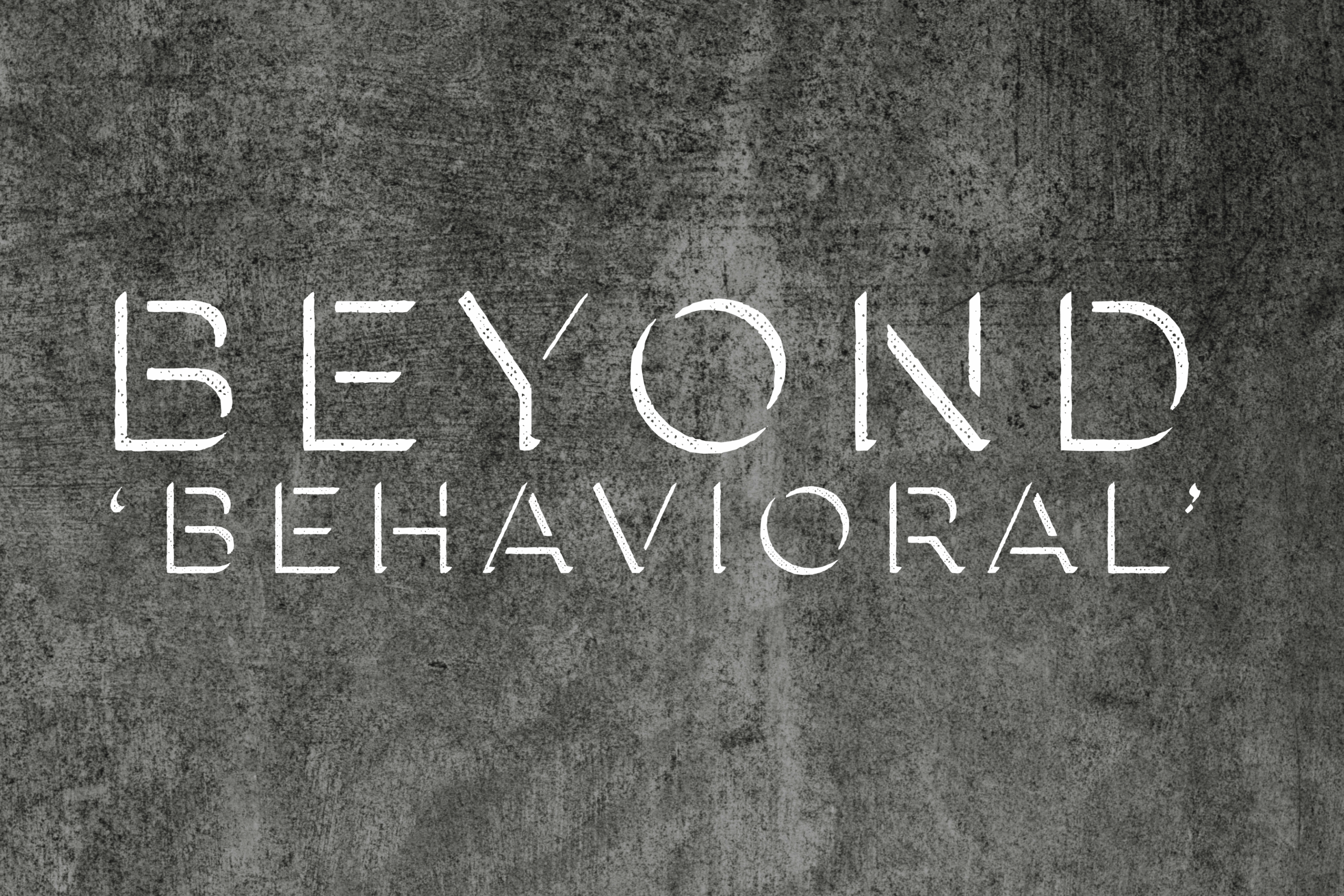
Beyond ‘Behavioral’: Rethinking a word that shapes our view of mental health
by Kurt White // August 11, 2025
Most of my truly valued learning comes from those I work with — students, colleagues, and the individuals who teach me. Years ago, a perceptive student often reminded me, “language is important.” Having navigated a complex history with the mental health system, this student possessed a nuanced sensitivity to words many in our field might overlook. Indeed, the terms for mental health and illness carry weight far beyond simple definitions.
As my time as a therapist grows longer, so too has the terminology shifted. Most therapists have grown accustomed to “behavioral health” as an umbrella for mental health and substance use conditions. It always felt slightly off to me, and for those paying close attention, especially here in Vermont, it’s thankfully fading, much like dated phrases such as “alcohol abuse,” terms whose impact often diverged sharply from their intent.
“Behavioral” itself seems straightforward. It gained prominence through researchers like Pavlov, studying conditioned responses — think of a dog salivating at a bell. (Try it: imagine a tart lemon, and note your own subtle pucker!). John Watson later championed a psychology focused on observable actions. This sparked a long dialogue between prioritizing the observable versus exploring underlying depths. We still have “behavioral psychotherapies,” and effective approaches like CBT and DBT that blend the observable with cognitive and emotional elements. These are demonstrably effective, favored by researchers for measurability, and often by insurers for their typical brevity.
Later, in the 1980s, “behavioral health” was widely adopted, particularly by managed care, for mental health and addiction issues. The emphasis on observable, “documentable behavior change” suited a system geared towards measurable outcomes. This aimed to make complex conditions seem more manageable and to destigmatize them by integrating with general health approaches. For children, the term also seemed apt, as their mental health concerns often first appear as challenging behaviors at home or school.
However, despite these intentions, “behavioral” can inadvertently fuel mental health stigma — the attitudes leading to discrimination and “othering.” Focusing on “behavior” often implies voluntary control. Framing conditions like depression or schizophrenia as “behavioral health issues” risks suggesting they are matters of willpower, not complex human experiences. This can lead to profound self-blame, with individuals feeling weak for not simply “behaving” their way to wellness.
I learned long ago from those experiencing phenomena like hearing voices that the world’s emphasis on outward “behavior” — like speaking about an unshared reality — can be more distressing to others than the internal experience is to the person. Even when an internal experience is painful, it’s that pain, not usually an external action, which is the core problem.
Mental health challenges are multifaceted, arising from an interplay of genetics, brain chemistry, life experiences, and social-environmental factors. Reducing these profound experiences to mere action patterns overlooks these deep roots and the crucial social context. Such simplification obscures the true internal landscape of those with lived experience. Mental health isn’t just about outward actions; it’s about our internal psychological, emotional and social well-being. Behaviors are relevant, but often as symptoms, not the entire condition.
Choosing our words carefully is more than linguistic exercise; it’s vital for fostering understanding and supporting recovery. Embracing accurate, respectful and empowering language helps create a community where individuals feel seen, valued, respected for their humanity, and acknowledged as experts on their own lives. So, as “behavioral” fades back to its more precise meaning, I bid the broader term an ambivalent “bye now,” rather than a fond farewell.




